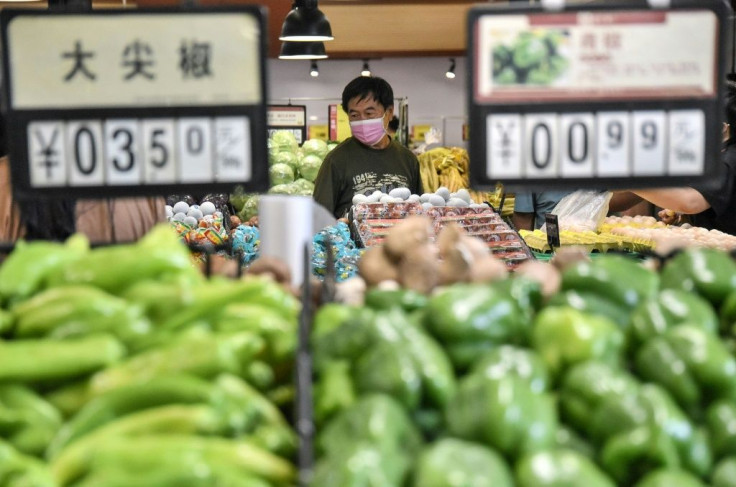China Consumer Prices Drop For First Time In Over A Decade
China's consumer prices dropped more than expected in November on falling food costs, with a key gauge turning negative for the first time in 11 years due to pork prices, according to official data released Wednesday.
The consumer price index (CPI), a key gauge of retail inflation, fell 0.5 percent on-year due to a high base of comparison in the same period last year, said Beijing's National Bureau of Statistics.
This continued a recent slide driven by easing prices of pork -- a staple meat in the world's second-largest economy whose prices rocketed after an African swine fever outbreak ravaged stocks.
Pork prices dropped 12.5 percent, widening October's fall and dragging the headline figure down, while other food items such as eggs, chicken and duck also saw a slide in prices compared with last year.
But core CPI, which strips out food and energy prices, "continued to remain stable", rising 0.5 percent from a year ago, official data showed.

Capital Economics' senior China economist Julian Evans-Pritchard said November's headline figure was "almost entirely driven by improvements in pork supply and isn't evidence of faltering demand".
"To the contrary, broader price pressures are starting to pick up on the back of the improvement in economic activity," he added.
There was improvement in factory-gate prices, however, with the producer price index (PPI) falling 1.5 percent on-year last month -- a smaller drop than the 1.8 percent fall a Bloomberg poll of analysts expected.
NBS senior statistician Dong Lijuan said "market demand continued to pick up, and industrial product prices continued to rise" in November.
PPI measures the cost of goods at the factory gate, and prices have been dragged by the coronavirus fallout.
OCBC Bank's head of Greater China research Tommy Xie told AFP: "The improving PPI definitely reinforces the expectation that the Chinese (economic) recovery is on track."
© Copyright AFP 2024. All rights reserved.





















